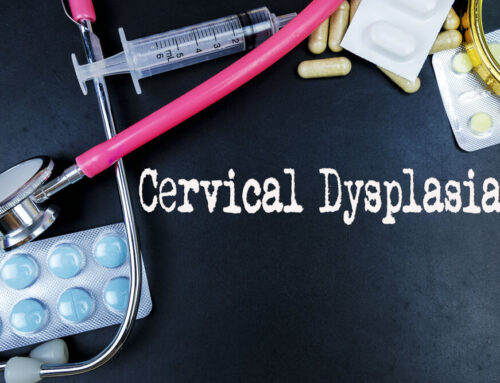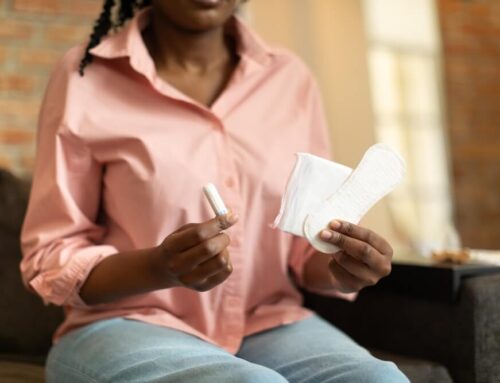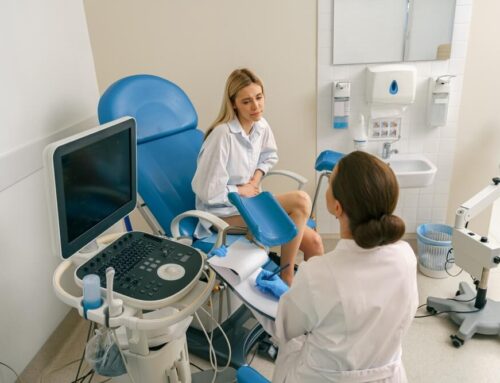Bleeding after sex, also known as postcoital bleeding, can be alarming and potentially indicate an underlying health issue. While it is not uncommon for women to experience some spotting after sex, particularly after menopause, persistent or heavy bleeding after sex should be evaluated by a healthcare provider. This article will explore some common causes of postcoital bleeding and when to seek medical attention.
If you happen to suffer from the symptoms we will discuss in the following text, don’t hesitate to seek the best gynecological care in Margate, Florida.
Potential Causes of Bleeding After Sex

Sex-related bleeding is frequently an indicator of a more serious underlying health problem. Infections and polyps, for example, are among the many that can be remedied. When you have occasional spotting after having sex, it usually goes away without any intervention from a doctor.
One common cause of postcoital bleeding is hormonal changes, particularly in women who are approaching menopause. During this time, the body’s estrogen levels begin to decline, which can cause the vaginal walls to become thin and more prone to bleeding. In addition, hormonal changes can also cause the vaginal tissues to become drier, making them more susceptible to bleeding.
Another possible cause of bleeding after intercourse is cervical irritation or infection. The cervix, the opening to the uterus, can become inflamed or infected due to various factors, including sexually transmitted infections (STIs), hormonal imbalances, or the use of certain medications. In these cases, bleeding after intercourse may indicate an underlying issue that requires medical attention.
Additionally, certain medical conditions, such as cervical or endometrial cancer, can also cause postcoital bleeding. These conditions are more common in older women, but it is essential to be aware of the potential symptoms and to discuss any concerns with a healthcare provider.
It is also worth noting that in some cases, bleeding or spotting after sex may be due to a lack of lubrication. In these cases, the bleeding is typically minor and can be easily managed by using a water-based lubricant during sex.
The Symptoms You Should Pay Attention to
The symptoms associated with bleeding after intercourse can vary depending on the underlying cause. If you are not menopausal and do not have any other risk factors, the bleeding is minor and goes away quickly; you may not need to see a doctor. However, if you are menopausal and experience any vaginal bleeding, it is crucial to speak with a healthcare provider. Additionally, if you experience any of the following symptoms, it is a good idea to consult with a doctor:
- Pain during sex
- Severe pain in the abdomen and/or lower back
- Heavy bleeding after sex
- Burning and/or itching in the vaginal area
- Abnormal vaginal discharge
- Vomiting or nausea
- Stinging sensation while urinating
If you are experiencing bleeding after sex, you can visit a primary care doctor or gynecologist for an evaluation. During the appointment, the doctor will ask questions about your symptoms, such as how long and how heavily you have been bleeding, as well as the shade of the blood. They may also ask about your sexual history and whether you use condoms or other barrier protection methods regularly.
Based on your symptoms and history, the doctor may recommend a physical exam to help determine the source of the bleeding. This may involve examining the vaginal walls, cervix, urethra, or vulva. The doctor may also order tests, such as a Pap smear, pregnancy test, or vaginal cultures, to look for sexually transmitted infections (STIs). While some people may be hesitant to visit a doctor for a sexual health concern, it is essential to remember that not all evaluations require a pelvic exam.
Treatment Options for Postcoital Bleeding
If postcoital bleeding is due to hormonal changes, such as those that occur during menopause, treatment may involve the use of estrogen creams or other medications to help restore hormonal balance and improve the health of the vaginal tissue. These treatments can help reduce the likelihood of heavy bleeding after sex and other menopausal symptoms.
In case bleeding or spotting after sex is caused by an infection or irritation of the cervix, treatment will typically involve using antibiotics or other medications to clear the infection and reduce inflammation. Sometimes, a healthcare provider may also recommend avoiding sexual activity until the infection has cleared to reduce the risk of further irritation.
In rare cases, postcoital bleeding may be a sign of a more severe condition, such as cervical or endometrial cancer. In these cases, treatment will typically involve a combination of medications, surgery, and other therapies, depending on the specific type and stage of cancer. It is essential to discuss all treatment options with a healthcare provider and follow their recommendations closely.
You may be prescribed iron if you suffer from anemia resulting from excessive blood loss related to postcoital bleeding. Still, dietary iron is the starting point for fixing this health issue. You can improve your iron status by eating more foods like meat, fish, beans, eggs, leafy greens, and peanut butter.
What Can You Do to Prevent Bleeding After Sex?

While it is not always possible to prevent postcoital bleeding, there are some steps you can take to reduce your risk. Here are some tips to help prevent postcoital bleeding:
- Practice safe sex: Using condoms and other barrier methods can help reduce your risk of sexually transmitted infections (STIs), which can cause irritation and inflammation of the cervix and increase your risk of postcoital bleeding.
- Avoid rough or vigorous sexual activity: Engaging in sexual activity that is too rough or vigorous can cause irritation and tear of the vaginal tissues, which can lead to postcoital bleeding. Try to be gentle and avoid activities that may cause discomfort or pain.
- Use lubrication: Dryness of the vaginal tissues can increase your risk of postcoital bleeding. Using a water-based lubricant can help reduce friction and prevent irritation during sex.
- Maintain a healthy lifestyle: Eating a balanced diet, getting regular exercise, and managing stress can help support overall health and reduce your risk of postcoital bleeding.
- Talk to a healthcare provider: If you are approaching menopause or have any other risk factors for postcoital bleeding, it may be a good idea to speak with a healthcare provider. They can guide how to manage your symptoms and reduce your risk.
Overall, while bleeding after sex can be alarming, it is typically not a cause for concern. However, if you are experiencing persistent or heavy bleeding or if you have any other concerns, it is essential to discuss these with a healthcare provider. They can help determine the underlying cause of the bleeding and provide appropriate treatment if necessary.
At Fern F. Taisenchoy-Bent, MD LLC, we are equipped to handle any and all of our female patients’ medical requirements. Whatever your gynecological needs, from preventative care to aesthetic enhancements, you can count on our full support.










